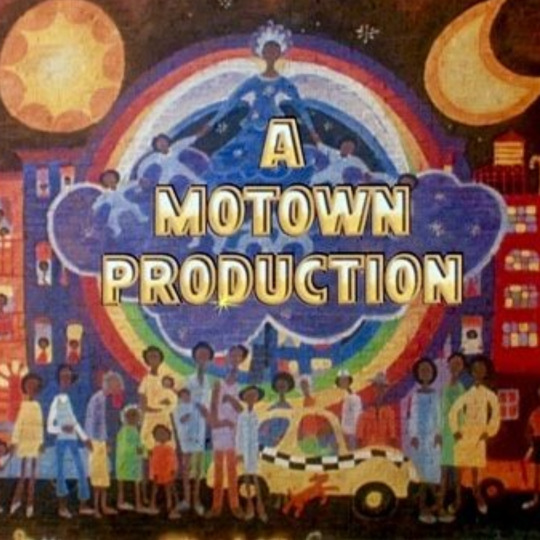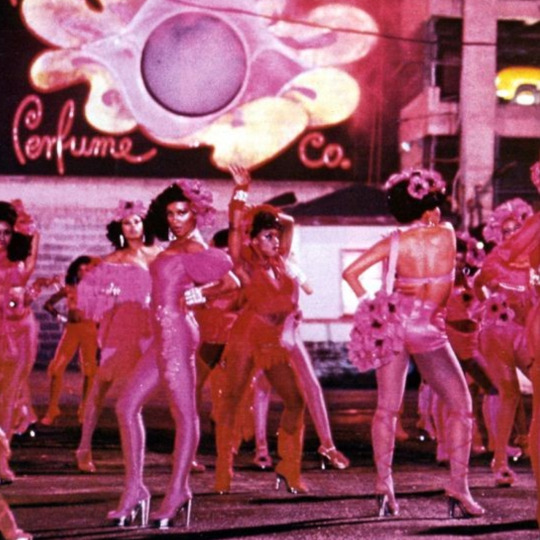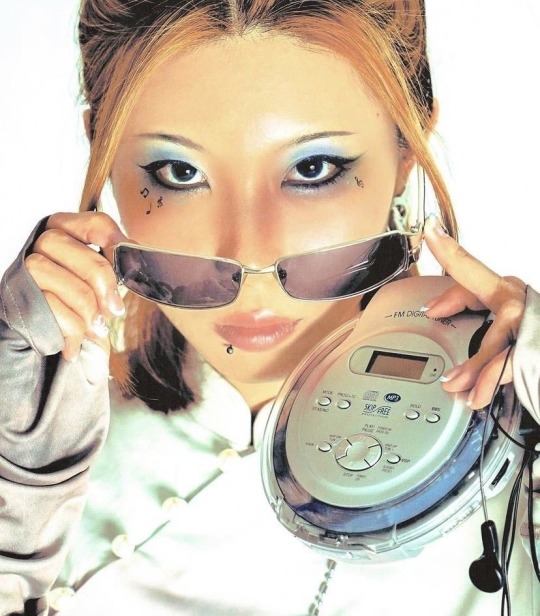|INFJ|Professional Fuckup| 22My Romanticized EgoLow key my diary but whatever
Don't wanna be here? Send us removal request.
Text
I find myself wanting life to just fly away from me. I want all the answers. Particularly right now my pmdd is doing the talking. But I am tired of being me. Living this same damn life doing the same damn thing. I could do anything rn and it wouldn’t matter because I would still be me. There couldn’t be a god because this whole thing is a joke. One big practical joke . I’m so bored of life and it’s continuous extortion of every minority . Telling us there’s no place for us and we’re ungrateful. Yet if ****** myself it’s a crime
If the gov were merciful they would release those who were ready to go
0 notes
Text
I guess I’m sad because there will always be a part of me that wants to die. I just wish life away. But I want to see how it end for me. I think a lot of the tarot in my life gets blocked bc I know the ending I’ll finally one day gather the courage to really do it. I’ll just meet my folks on the other side. Hhhhhhhhh
0 notes
Text
sometimes i think "well maybe i'm not actually depressed" and then i catch myself going about daily life feeling 85% certain that human existence is probably some sort of purgatorial punishment for sins committed by the soul in some vaster cosmic past life
17K notes
·
View notes
Text









The WIZ
directed by Sidney Lumet
starring Diana Ross, Michael Jakson, Nipsey Russel, & Ted Ross.
80 notes
·
View notes
Text
being neglected as a child makes being an adult so funny because you go to the grocery store & think everyone is going to beat you to death
9K notes
·
View notes
Text
Being misunderstood is difficult, but it’s okay. Let them misunderstand you. Be so unwavering in your commitment to yourself that no one can take that away from you. You know yourself better than anyone else does. They might never understand, and that sucks, but you can validate yourself even when they don’t. Give yourself the love and validation others won’t - you deserve it. The way you understand yourself is valid even if others see it differently <3.
582 notes
·
View notes
Text
The Neurodivergent Writer’s Guide to Fun and Productivity
(Even when life beats you down)
Look, I’m a mom, I have ADHD, I’m a spoonie. To say that I don’t have heaps of energy to spare and I struggle with consistency is an understatement. For years, I tried to write consistently, but I couldn’t manage to keep up with habits I built and deadlines I set.
So fuck neurodivergent guides on building habits, fuck “eat the frog first”, fuck “it’s all in the grind”, and fuck “you just need time management”—here is how I manage to write often and a lot.
Focus on having fun, not on the outcome
This was the groundwork I had to lay before I could even start my streak. At an online writing conference, someone said: “If you push yourself and meet your goals, and you publish your book, but you haven’t enjoyed the process… What’s the point?” and hoo boy, that question hit me like a truck.
I was so caught up in the narrative of “You’ve got to show up for what’s important” and “Push through if you really want to get it done”. For a few years, I used to read all these productivity books about grinding your way to success, and along the way I started using the same language as they did. And I notice a lot of you do so, too.
But your brain doesn’t like to grind. No-one’s brain does, and especially no neurodivergent brain. If having to write gives you stress or if you put pressure on yourself for not writing (enough), your brain’s going to say: “Huh. Writing gives us stress, we’re going to try to avoid it in the future.”
So before I could even try to write regularly, I needed to teach my brain once again that writing is fun. I switched from countable goals like words or time to non-countable goals like “fun” and “flow”.
Rewire my brain: writing is fun and I’m good at it
I used everything I knew about neuroscience, psychology, and social sciences. These are some of the things I did before and during a writing session. Usually not all at once, and after a while I didn’t need these strategies anymore, although I sometimes go back to them when necessary.
I journalled all the negative thoughts I had around writing and try to reason them away, using arguments I knew in my heart were true. (The last part is the crux.) Imagine being supportive to a writer friend with crippling insecurities, only the friend is you.
Not setting any goals didn’t work for me—I still nurtured unwanted expectations. So I did set goals, but made them non-countable, like “have fun”, “get in the flow”, or “write”. Did I write? Yes. Success! Your brain doesn’t actually care about how high the goal is, it cares about meeting whatever goal you set.
I didn’t even track how many words I wrote. Not relevant.
I set an alarm for a short time (like 10 minutes) and forbade myself to exceed that time. The idea was that if I write until I run out of mojo, my brain learns that writing drains the mojo. If I write for 10 minutes and have fun, my brain learns that writing is fun and wants to do it again.
Reinforce the fact that writing makes you happy by rewarding your brain immediately afterwards. You know what works best for you: a walk, a golden sticker, chocolate, cuddle your dog, whatever makes you happy.
I conditioned myself to associate writing with specific stimuli: that album, that smell, that tea, that place. Any stimulus can work, so pick one you like. I consciously chose several stimuli so I could switch them up, and the conditioning stays active as long as I don’t muddle it with other associations.
Use a ritual to signal to your brain that Writing Time is about to begin to get into the zone easier and faster. I guess this is a kind of conditioning as well? Meditation, music, lighting a candle… Pick your stimulus and stick with it.
Specifically for rewiring my brain, I started a new WIP that had no emotional connotations attached to it, nor any pressure to get finished or, heaven forbid, meet quality norms. I don’t think these techniques above would have worked as well if I had applied them on writing my novel.
It wasn’t until I could confidently say I enjoyed writing again, that I could start building up a consistent habit. No more pushing myself.
I lowered my definition for success
When I say that nowadays I write every day, that’s literally it. I don’t set out to write 1,000 or 500 or 10 words every day (tried it, failed to keep up with it every time)—the only marker for success when it comes to my streak is to write at least one word, even on the days when my brain goes “naaahhh”. On those days, it suffices to send myself a text with a few keywords or a snippet. It’s not “success on a technicality (derogatory)”, because most of those snippets and ideas get used in actual stories later. And if they don’t, they don’t. It’s still writing. No writing is ever wasted.
A side note on high expectations, imposter syndrome, and perfectionism
Obviously, “Setting a ridiculously low goal” isn’t something I invented. I actually got it from those productivity books, only I never got it to work. I used to tell myself: “It’s okay if I don’t write for an hour, because my goal is to write for 20 minutes and if I happen to keep going for, say, an hour, that’s a bonus.” Right? So I set the goal for 20 minutes, wrote for 35 minutes, and instead of feeling like I exceeded my goal, I felt disappointed because apparently I was still hoping for the bonus scenario to happen. I didn’t know how to set a goal so low and believe it.
I think the trick to making it work this time lies more in the groundwork of training my brain to enjoy writing again than in the fact that my daily goal is ridiculously low. I believe I’m a writer, because I prove it to myself every day. Every success I hit reinforces the idea that I’m a writer. It’s an extra ward against imposter syndrome.
Knowing that I can still come up with a few lines of dialogue on the Really Bad Days—days when I struggle to brush my teeth, the day when I had a panic attack in the supermarket, or the day my kid got hit by a car—teaches me that I can write on the mere Bad-ish Days.
The more I do it, the more I do it
The irony is that setting a ridiculously low goal almost immediately led to writing more and more often. The most difficult step is to start a new habit. After just a few weeks, I noticed that I needed less time and energy to get into the zone. I no longer needed all the strategies I listed above.
Another perk I noticed, was an increased writing speed. After just a few months of writing every day, my average speed went from 600 words per hour to 1,500 wph, regularly exceeding 2,000 wph without any loss of quality.
Talking about quality: I could see myself becoming a better writer with every passing month. Writing better dialogue, interiority, chemistry, humour, descriptions, whatever: they all improved noticeably, and I wasn’t a bad writer to begin with.
The increased speed means I get more done with the same amount of energy spent. I used to write around 2,000-5,000 words per month, some months none at all. Nowadays I effortlessly write 30,000 words per month. I didn’t set out to write more, it’s just a nice perk.
Look, I’m not saying you should write every day if it doesn’t work for you. My point is: the more often you write, the easier it will be.
No pressure
Yes, I’m still working on my novel, but I’m not racing through it. I produce two or three chapters per month, and the rest of my time goes to short stories my brain keeps projecting on the inside of my eyelids when I’m trying to sleep. I might as well write them down, right?
These short stories started out as self-indulgence, and even now that I take them more seriously, they are still just for me. I don’t intend to ever publish them, no-one will ever read them, they can suck if they suck. The unintended consequence was that my short stories are some of my best writing, because there’s no pressure, it’s pure fun.
Does it make sense to spend, say, 90% of my output on stories no-one else will ever read? Wouldn’t it be better to spend all that creative energy and time on my novel? Well, yes. If you find the magic trick, let me know, because I haven’t found it yet. The short stories don’t cannibalize on the novel, because they require different mindsets. If I stopped writing the short stories, I wouldn’t produce more chapters. (I tried. Maybe in the future? Fingers crossed.)
Don’t wait for inspiration to hit
There’s a quote by Picasso: “Inspiration hits, but it has to find you working.” I strongly agree. Writing is not some mystical, muse-y gift, it’s a skill and inspiration does exist, but usually it’s brought on by doing the work. So just get started and inspiration will come to you.
Accountability and community
Having social factors in your toolbox is invaluable. I have an offline writing friend I take long walks with, I host a monthly writing club on Discord, and I have another group on Discord that holds me accountable every day. They all motivate me in different ways and it’s such a nice thing to share my successes with people who truly understand how hard it can be.
The productivity books taught me that if you want to make a big change in your life or attitude, surrounding yourself with people who already embody your ideal or your goal huuuugely helps. The fact that I have these productive people around me who also prioritize writing, makes it easier for me to stick to my own priorities.
Your toolbox
The idea is to have several techniques at your disposal to help you stay consistent. Don’t put all your eggs in one basket by focussing on just one technique. Keep all of them close, and if one stops working or doesn’t inspire you today, pivot and pick another one.
After a while, most “tools” run in the background once they are established. Things like surrounding myself with my writing friends, keeping up with my daily streak, and listening to the album I conditioned myself with don’t require any energy, and they still remain hugely beneficial.
Do you have any other techniques? I’d love to hear about them!
I hope this was useful. Happy writing!
9K notes
·
View notes
Text
Do you ever feel like SHIT? Like life is moving so fast, and you’re stuck, tired, or completely drained? cuz same 🙋🏻♀️. That’s why I started looking into Japanese and Chinese habits—because I'm searching for slow down type of lifestyle, finding balance, and creating small moments of peace in the dawm chaos. Now, I know some of y’all will say, 'It’s overrated, you’re just obsessed with China or Japan,' but hear me out these habits aren’t about trends—they’re rooted in centuries and they’ve genuinely helped me improve both physically and mentally. If you’re ready to stop just surviving and start thriving, keep reading. These little changes might just change your life too.
Little Habits, Big Glow: Japanese & Chinese Traditions That Changed My Life part 1:
First off, warm water in the MORNING. I used to roll out of bed and go straight for coffee or cold ass water cuz my throat is DRYYYY , and honestly, my body hated me for it fr. But then I read about how in Chinese medicine, drinking warm water first thing in the morning is seen as a way to wake up your body gently. And let me tell you, IT WORK. No bloating, no sluggishness—just a simple, calming way to start the day. Sometimes I add a slice of lemon, and it feels like I’m doing something kind for my body before I even check my phone
Two Ikigai.( I talked Abt Ikigai and how to achieve this concept click here!) Japanese concept changed the way I see my day-to-day life. It’s basically finding purpose in the little things—like, not waiting for some huge life-changing moment to feel fulfilled. I used to put so much pressure on myself, thinking I needed to achieve these massive goals to be happy. But Ikigai taught me to slow down and find joy in small things, like enjoying my morning tea or journaling. It’s a game-changer for anyone who feels like they’re always chasing something bigger.
Another thing I’ve started doing is Tai Chi or qing gong. I know I know—it looks slow and kind of boring, but hear me out. It’s like moving meditation, and if you’re someone who struggles with anxiety (like meeey), this will center you like nothing else. It’s not about burning calories or anything like that; it’s about connecting your body and mind in the most peaceful way. Even just 10 minutes a day leaves me feeling lighter and more focused. (Click here to watch a video of it) When I first started, I thought, 'This is way too slow for me.' But then something clicked. The slowness is the point. It forces you to focus on your breathing, your posture, and every little movement. It’s like a moving meditation that clears your mind while strengthening your body.
© bloomzone



1K notes
·
View notes
Text
Grandmas were so right about puzzles and knitting and crocheting and solitaire and reading slow and slippers and baking and watching deer in the backyard send post
273K notes
·
View notes
Text
Hormone balancing juice:
• Pomegranate: Rich in antioxidants, supports estrogen balance & heart health
• Beetroot: Boosts circulation & helps detox the liver, key for hormone regulation
• Carrots: Supports the liver in flushing out excess estrogen & promotes healthy skin
• Orange: Packed with vitamin C, helps regulate cortisol & improves overall energy
• Ginger: Reduces inflammation & aids digestion, which is crucial for balanced hormones
Additional ingredients you can add:
• Turmeric: Anti inflammatory & supports liver detox, helping regulate hormones
• Apple: Adds natural sweetness, fiber & supports liver health
• Lemon: Boosts digestion & further helps with liver detox, supporting hormone balance
• Flaxseeds: Rich in omega 3s which help regulate estrogen levels
• Cucumber: Hydrating & soothing, helps flush toxins and balance hormones
• Spinach or Kale: Provides essential nutrients like magnesium, which supports hormone regulation & reduces stress


1K notes
·
View notes
Text
Writing Notes: Speech & Language

Milestones Related to Speech and Language
Birth to 5 months
Coos
Vocalizes pleasure and displeasure sounds differently (laughs, giggles, cries, or fusses)
Makes noise when talked to
6 to 11 months
Understands "no-no"
Babbles (says "ba-ba-ba")
Says "ma-ma" or "da-da" without meaning
Tries to communicate by actions or gestures
Tries to repeat your sounds
Says first word
2 to 17 months
Answers simple questions nonverbally
Says 2-3 words to label a person/object (pronunciation may not be clear)
Tries to imitate simple words
Vocabulary of 4-6 words
18 to 23 months
Vocabulary of 50 words, pronunciation is often unclear
Asks for common foods by name
Makes animal sounds ("moo")
Starting to combine words ("more milk")
Begins to use pronouns ("mine")
Uses 2-word phrases
2 to 3 years
Knows some spatial concepts ("in" or "on")
Knows pronouns ("you," "me" or "her")
Knows descriptive words ("big" or "happy")
Uses 3-word sentences
Speech becomes more accurate, but may still leave off-ending sounds. Strangers may not understand much of what is said.
Answers simple questions
Begins to use more pronouns ("you" or "I")
Uses question inflection to ask for something ("my ball?")
Begins to use plurals ("shoes" or "socks"; regular past tense verbs, "jumped")
3 to 4 years
Groups objects, such as foods or clothes
Identifies colors
Uses most speech sounds, but may distort some of the more difficult sounds, such as l, r, s, sh, ch, y, v, z, th. These sounds may not be fully mastered until age 7 or 8.
Uses consonants in the beginning, middle, and ends of words.
Some of the more difficult consonants may be distorted, but attempts to say them
Strangers are able to understand much of what is said
Able to describe the use of objects ("fork" or "car")
Has fun with language; enjoys poems and recognizes language absurdities ("Is that an elephant on your head?")
Expresses ideas and feelings rather than just talking about the world around him or her
Uses verbs that end in "ing" ("walking" or "talking")
Answers simple questions ("What do you do when you are hungry?")
Repeats sentences
4 to 5 years
Understands spatial concepts ("behind" or "next to")
Understands complex questions
Speech is understandable, but makes mistakes pronouncing long, difficult, or complex words ("hippopotamus")
Uses some irregular past tense verbs ("ran" or "fell")
Describes how to do things (e.g., painting a picture)
Lists items that belong in a category (e.g., animals or vehicles)
Answers "why" questions
5 years
Understands time sequences (e.g., what happened first, second...)
Carries out a series of 3 directions
Understands rhyming
Engages in conversation
Sentences can be 8 or more words in length
Uses compound and complex sentences
Describes objects
Uses imagination to create stories
NOTE
The ability to hear is essential for proper speech and language development.
Hearing problems may be suspected in children who are not responding to sounds or who are not developing their language skills appropriately.
The above are some age-related guidelines that may help to decide if your child is experiencing hearing problems.
It's important to remember that not every child is the same.
Children reach milestones at different ages.
Source ⚜ More: References ⚜ On Children ⚜ Hearing ⚜ Children's Dialogue
734 notes
·
View notes
















